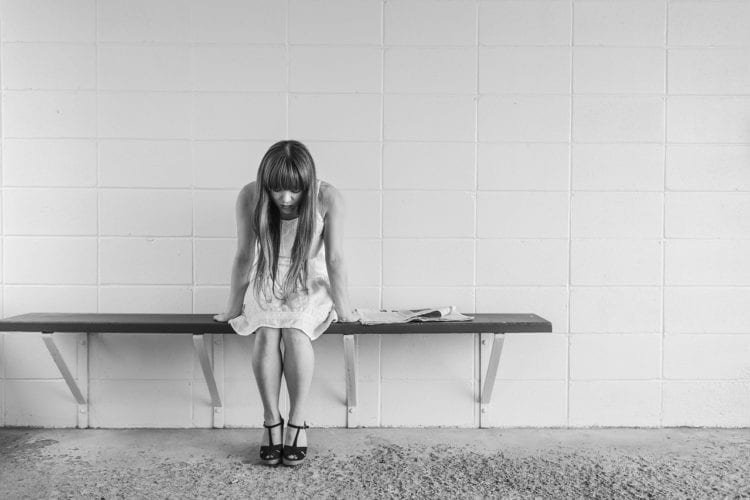This question was asked on Quora.com recently: “How do you deal with embarrassment? The kind that you may feel from health, financial or physical appearance issues.” Here’s my response to the author …
The first thing that you need to think about when trying to figure out how to deal with embarrassment – of any kind – is what “embarrassment” actually is in its essence.
Embarrassment, is essentially an unhelpful emotional state, like many others.
GoodTherapy.org described “embarrassment” as,
Embarrassment can be described as an uncomfortable and often intense public emotion that may be characterized by feelings of exposure, awkwardness, or regret.
And in order to learn how to deal with embarrassment – or any unhelpful emotional state – you have to become aware of how YOU specifically, actually create that state of embarrassment in yourself.
Many people think that the emotional states we experience are created by external circumstances, but even though these do influence us, any emotional state we experience is still created by us internally.
World-renowned life coach, Tony Robbins, teaches what he calls “the Triad” as the primary way most people create any emotional state.
He essentially says that the three things working together at any given time that creates an emotional state, such as embarrassment, is: focus, language, and physiology.
Firstly, what we FOCUS on most of the time has a huge impact on our emotional state.
If I go through life focusing on everything that is wrong in my life, it would be very hard for me to feel good feelings about my life.
The same would go for embarrassment – if you feel embarrassed most of the time, chances are you’re going through life focusing on everything that triggers a state of embarrassment within you.
Even though those things aren’t necessarily reasons for embarrassment – not when compared to someone else’s life in any case.
It’s all about perspective.
If you compare your life with a wealthier friend, for example, it is easy to feel embarrassed when you have less than he or her.
But, conversely, when you compare your life with someone living in appalling circumstances in India, your situation is actually much more of a blessing than an embarrassment.
Secondly, when we focus on things, our brain needs to give meaning to the thing we are focusing on.
We call this in inner language or SELF-TALK.
Our self-talk, and especially the meaning we assign to anything we are focusing on, plays a huge role in the emotional state we create.
So, for example, if I focus on one specific thing in my life that I don’t like, and I constantly keep saying to myself just how much I don’t like this thing, or how unfair it is that I have it in my life, chances are that I will create an unhelpful emotional state.
The third component is PHYSIOLOGY.
Typically, when we focus on specific things consistently, we give those things an unhelpful or even toxic meaning, our bodies will react to that accordingly.
In other words, if you compare someone who is feeling sad all the time with someone who is upbeat all the time, you can physically see it in their bodies and how they carry themselves.
Moreover, we used to believe that it was only our minds that impacted our physical state, but we have since discovered that how we use our bodies actually has an equal effect on our state of mind.
For example, if you were to adopt what is called a “power pose” or “power stance,” given enough time your mind will respond by creating a state of “confidence,” even when you didn’t feel confident initially.
But, the same goes for states like embarrassment.
If you go through life carrying yourself in a way that actually looks “embarrassing,” chances are that you will actually trigger or intensify a state of embarrassment within your psychology.
When you then “express” embarrassment in your body, you end up focusing on it more, you say something to yourself about it internally, and it eventually becomes something that feeds on itself.
If you want to deal with an unhelpful emotional state, like embarrassment, you need to learn how to manipulate and change your focus, self-talk, and physiology.
Of the three, the one that creates the fastest change is your physiology.
There are certain things you can do to create what is called a “pattern interrupt” by putting your body in a different state than the one you’re trying to avoid.
For example, it’s very difficult to feel “embarrassed” while submerged in an ice-bath (safely of course) or bungee-jumping off a cliff. Your mind cannot handle both at the same time.
I also like what leadership expert Robin Sharma once wrote when he advised: “It is easier to behave yourself into a new way of thinking than think yourself into a new way of behaving.”
It essentially comes down to the same idea – put yourself in a different physical or behavioural space (forced even), and your mind will have to shift its focus from what causes embarrassment to a different state.
Another and last example – it’s very difficult feeling embarrassed about your own life while feeding the poor at a soup kitchen. Chances are you will feel gratitude for your life more than embarrassment. Again, perspective.
I wrote an article on my blog a while back called “How to Control Your Emotions in a Relationship and Become Happier” that explains a little bit more about how to use various aspects of your psychology and physiology, like the ones I just mentioned, to control or change your unhelpful emotional states and become happier.
Now, even though this article was written in the context of relationships, the principles still apply to your situation.
I would encourage you to go and have a look at it and see if it helps you learn how to deal with embarrassment.
Again, it is important not to get caught up in the details of what you believe is creating embarrassment, as these things will always vary.
It is not what is happening around us, but rather how we respond to what is happening around us that creates our internal states.
Once you change how you respond to whatever it is in your life, your internal state will change accordingly as well.
I hope you found this helpful.
Live and love fully my friend.
Gideon


